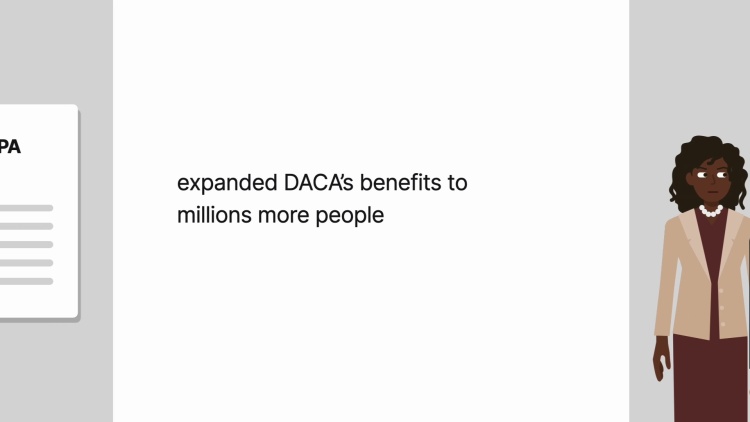The DACA Case (Department of Homeland Security v. Regents of the University of California)
United States Supreme Court
140 S. Ct. 1891 (2020), 591 U.S. 1 (2020)
- Written by Angela Patrick, JD
Facts
In 2012, the Department of Homeland Security (DHS) (defendant) announced the Deferred Action for Childhood Arrivals (DACA) program. The program allowed noncitizens who had come to the United States as children to apply to remain temporarily in the United States. Program recipients also became eligible to work and obtain certain federal benefits. DHS then created the related program Deferred Action for Parents of Americans and Lawful Permanent Residents (DAPA), which expanded DACA’s benefits to millions more people. Under President Donald Trump, DHS rescinded both programs, claiming that they were illegal. The rescission order did not indicate that DHS had (1) considered rescinding only parts of the programs or (2) taken into account the reliance interests created by the programs, such as considering the hardships that recission would cause for program recipients who had already started careers and enrolled in colleges in the expectation that they would not be deported. The regents of the University of California and others (collectively, the regents) (plaintiffs) filed three separate lawsuits, contending that rescinding the programs violated (1) the Administrative Procedure Act (APA) and (2) the Equal Protection Clause. The regents largely prevailed at the trial-court level. In one case, the district court gave DHS an opportunity to further explain its decision. DHS issued a new memorandum providing new policy arguments and rationales for the rescission decision. The United States Supreme Court consolidated the cases and granted certiorari.
Rule of Law
Issue
Holding and Reasoning (Roberts, C.J.)
Concurrence (Sotomayor, J.)
Concurrence/Dissent (Kavanaugh, J.)
Dissent (Thomas, J.)
Dissent (Alito, J.)
What to do next…
Here's why 907,000 law students have relied on our case briefs:
- Written by law professors and practitioners, not other law students. 47,100 briefs, keyed to 996 casebooks. Top-notch customer support.
- The right amount of information, includes the facts, issues, rule of law, holding and reasoning, and any concurrences and dissents.
- Access in your classes, works on your mobile and tablet. Massive library of related video lessons and high quality multiple-choice questions.
- Easy to use, uniform format for every case brief. Written in plain English, not in legalese. Our briefs summarize and simplify; they don’t just repeat the court’s language.






